Search Results
Showing results 1 to 15 of 15

Divide and Conquer: Santa's Dirty Socks
Source Institutions
This activity introduces the idea of "divide and conquer" using a fictitious but serious problem--a pair of dirty socks has accidentally been wrapped in one of the presents that Santa is about to deli
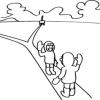
Ice Roads: Steiner Trees
Source Institutions
In this outdoor activity, learners use pegs (like tent pegs) and string or elastic to simulate drill sites and roads in Northern Canada.

Beat the Clock: Sorting Networks
Source Institutions
Even fast computers are limited to how quickly they can solve problems. One way to speed things up is to use several computers at once.
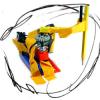
Pico Cricket Compass
Source Institutions
Learners can program a compass to draw a circle by itself using a Pico Cricket, some Legos, and lots of tape! Pico Cricket is required.
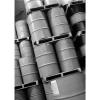
Computation and Estimation: Roll Out The Barrel
Source Institutions
In this math lesson, learners apply mathematical modeling to solve a real-world storage problem, in which a manufacturing company is given two options for storing oil barrels.

Number Sense and Computation: Food For Thought
Source Institutions
In this math lesson, learners identify and compare unit costs of given items. Learners use computation skills, problem solving and number sense to find the cost of an ounce of cereal.
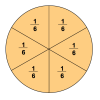
Number Sense and Computation: To Half or Half Not
Source Institutions
In this math lesson, learners use slices of bread and geoboards to explore several ways to divide a rectangle in half. Learners also identify equivalent fractions that represent one-half.

Geometry and Spatial Relations: Mirror, Mirror
Source Institutions
In this math lesson, learners use hinged mirrors to discover that regular polygons are composed of triangles tessellating around a center point.
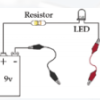
Exploring Materials: Graphene
Source Institutions
In this activity on page 4 of the PDF, explore the unique molecular structure and conductive nature of graphene. Learners construct a circuit with a battery and LED bulb.
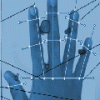
Hand Biometrics Technology
Source Institutions
In this activity, learners explore how engineers incorporate biometric technologies into products as well as the challenges of engineers who must weigh privacy, security and other issues when designin
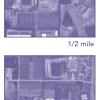
Aerial Imagery
Source Institutions
This activity (on page 2 of the PDF under SciGirls Activity: Earthquakes) is a full inquiry investigation into aerial imagery.

Number Sense and Computation: Soak It Up
Source Institutions
In this math lesson, learners compare products to determine the best product.

From the Internet to Outer Space
Source Institutions
In this activity, learners will use Google Sky to observe features of the night sky and share their observations.

Determining the Amount of Transpiration from a Schoolyard Tree
Source Institutions
In this activity, learners calculate the number of milliliters of water a nearby tree transpires per day.

Algebra: Aw Chute!
Source Institutions
In this math lesson, learners determine and compare the rate of descent of various learner-constructed parachutes. Learners construct parachutes that will have maximum hang times.
